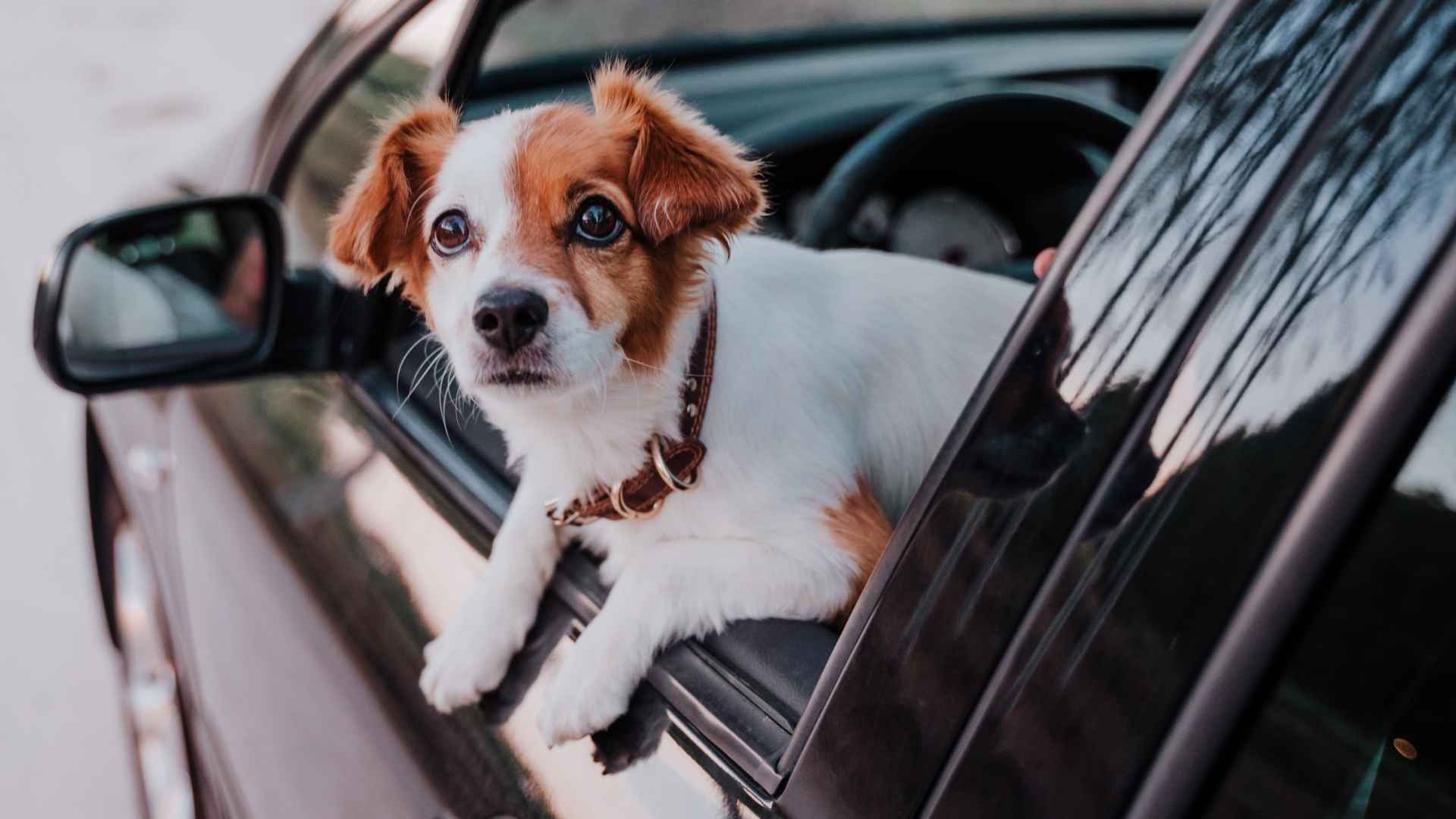Not every journey needs a plan. Some of the best ones start with nothing more than a full tank and an open mind.
You drive, not to escape something, but to feel something. To clear your head. To see what’s out there. And when a dog is in the seat beside you, the ride changes. It slows down, softens. The world feels friendlier somehow.
But only certain dogs bring that kind of energy. The kind that doesn’t rattle, doesn’t overreact. They’re just… steady. A calming presence that matches your rhythm, not interrupts it. You don’t have to say much. They get it.
You park, they wait. You rest, they do too. You roll down the window, and both of you just breathe. That kind of vibe isn’t found in every breed.
If this sounds like your kind of life, these are the dog breeds that fit right into it.
Dog Breeds For Road Trippers
1. Labrador Retriever
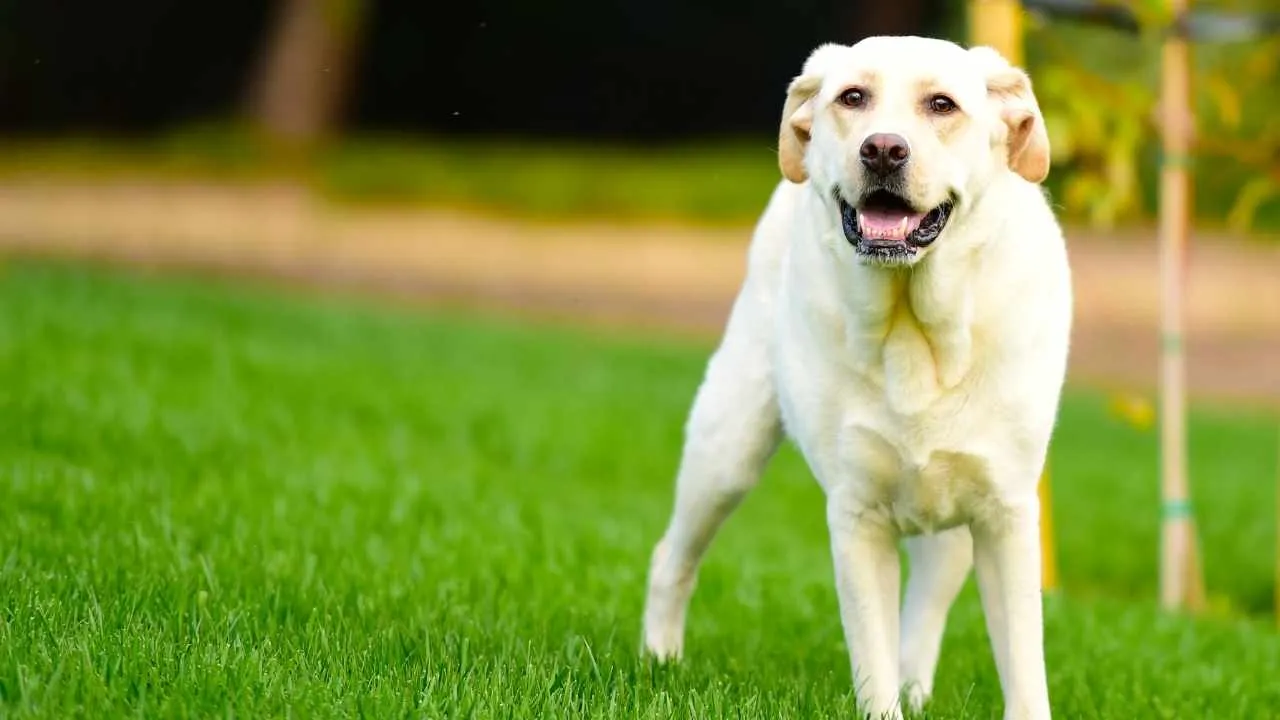
Labs adjust easily to changing environments, making them reliable companions for extended travel. Their calm energy keeps the vibe steady during stopovers or delays. They’re quick to settle in new places without getting anxious or restless, as per AKC.
Tuned into Routines and Rhythms
These dogs naturally pick up on patterns, like rest stops or when the trunk opens for a break. They learn fast what to expect and don’t get overwhelmed by long stretches. This makes planning smoother, especially on a multi-day road trip.
Comfortable in Motion
Labs usually enjoy a car ride once they’ve associated it with new places and shared time. Their body language stays relaxed even during winding routes or city traffic. With basic comforts, like ventilation and a soft mat, they adapt quickly.
Easy to Manage on the go
They respond well to commands in unfamiliar settings, making bathroom breaks and quick hikes easier. Labs have a way of tuning in to their people without being clingy. No surprise they’re often called one of the best dog breed choices for travelers.
2. Golden Retriever

Goldens intuitively match their energy with the environment—calm during drives, active during breaks. They don’t pace or fuss during long stretches of travel. Even with minimal cues, they stay attuned to shifting routines on the road.
Handles Stimulation Without Stress
Crowded fuel stations, unfamiliar rest areas, and pet-friendly hotels don’t overstimulate them. Their easygoing temperament allows them to transition through different surroundings smoothly. This makes logistics easier for pet parents covering varied terrain.
Responsive Without Being Reactive
They don’t overreact to honking, GPS voices, or people passing by the windows. Instead, they stay observant and relaxed, often glancing at their human before reacting. That kind of awareness makes them stand out as road trip companions.
Eager, but not Demanding
Goldens wait for instructions instead of making noise for attention during delays or detours. They’re content to rest quietly between activities without signs of frustration. These amazing dogs carry a natural sense of patience that’s ideal for long journeys.
3. German Shorthaired Pointer
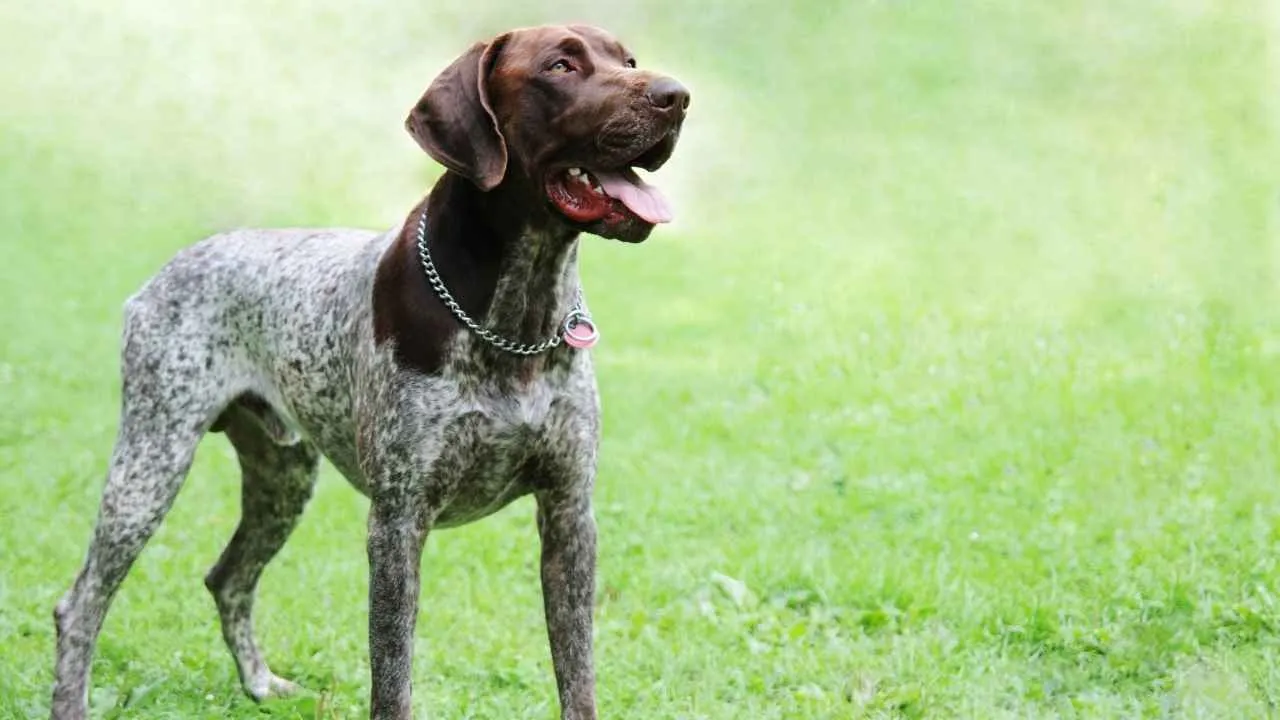
These pointer dogs aren’t made for idle days—being stationary too long can lead to agitation. They crave motion, making them ideal for active road travelers who explore between drives. Keeping them stimulated isn’t optional; it’s necessary for their well-being.
Energized by Outdoor Breaks
Even a short trail or an empty roadside field is enough to recharge them mentally and physically. Their energy resets through action, not rest, so mapping in movement breaks is part of good travel planning. Few breeds show this level of stamina on repeated outdoor adventure stops.
Highly Responsive in New Settings
Their focus sharpens when navigating unfamiliar paths or responding to new scents. They adjust quickly to terrain and can be off-leash trained for more flexible pit stops. This responsiveness helps streamline pet travel without constant correction or redirection.
Sensitive to Shared Space
These dogs pick up on changes in body language and tone inside the vehicle. They’ll naturally shift positions or stay alert without constant commands. That intuitive behavior makes them less of a distraction, even over long road trip hours.
4. Jack Russell Terrier
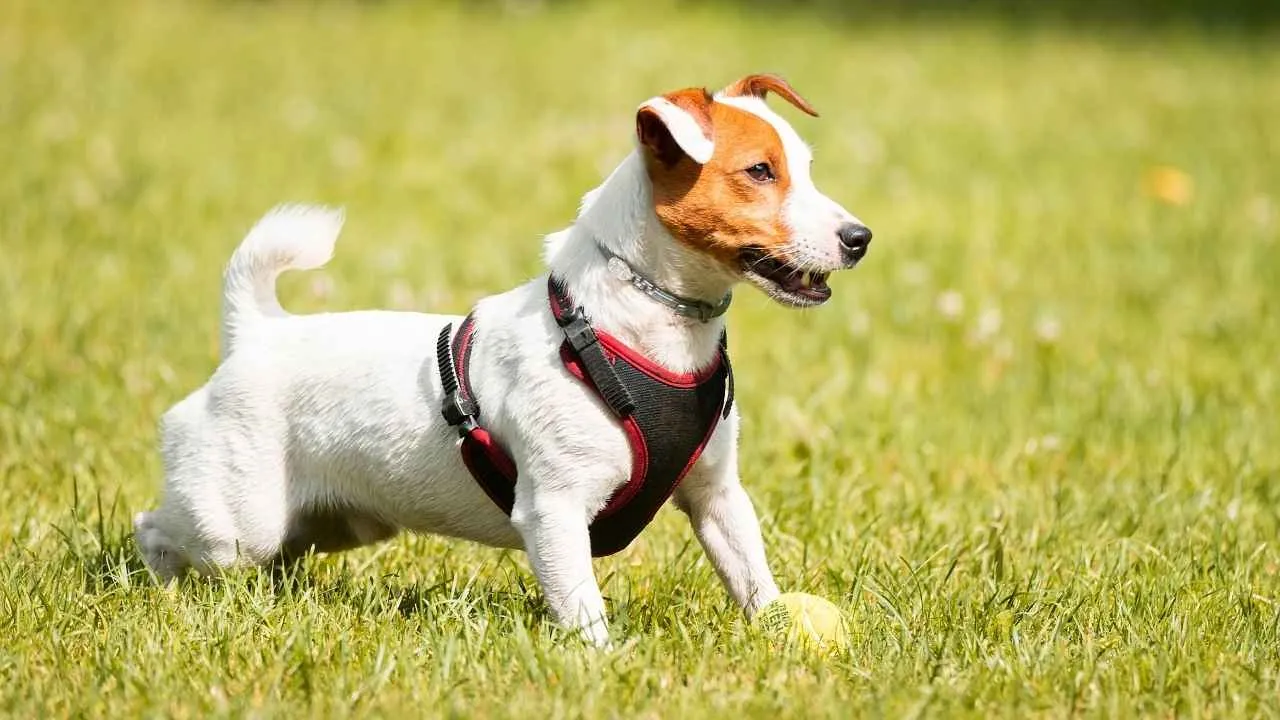
Jack Russells stay mentally alert throughout long drives, constantly watching the road, mirrors, or windows like it’s part of their job. Their sharp focus and quick reactions mean they rarely zone out. For active road trippers, that energy becomes contagious.
Movement is Non-negotiable
These small dogs don’t just benefit from movement—they require it. You’ll need pit stops that allow short sprints or exploration, not just a quick leash break. Without enough exercise, their pent-up energy can get tricky to manage inside the car.
Loves a Job, Even in the Car
Give them a chew puzzle or a scent toy in the passenger seat, and they’ll treat it like a mission. They thrive on engagement, even when confined to a small space. Their problem-solving instincts keep them occupied without needing constant attention.
Independent but Sociable
Jack Russells don’t beg for attention every minute, yet their friendly nature makes them great with people they meet along the way, as stated in PDSA. They’re fine being handled by strangers at stops, but still prefer their human to stay close. It’s a blend of confidence and loyalty.
5. Beagle

Beagles tend to settle into a travel schedule without much coaxing. Their internal pacing often syncs with frequent breaks and movement intervals. That steady rhythm helps reduce overstimulation during unpredictable road trip legs.
Strong Scent-driven Memory
Beagles rely heavily on scent to track and recall locations they’ve visited. This often makes it easier for a person to revisit campsites or pit stops without confusion. They remember routes by smell, not sight, which makes them surprisingly alert navigators.
Easily Managed due to Small Size
Their small size works well inside a packed vehicle, taking up minimal space without sacrificing comfort. Crates, harnesses, and car barriers are easy to fit around them. They’re light to lift if needed and don’t require much room to stretch out.
Noise Awareness Without Panic
Beagles are known to be vocal, but on the road, they respond more to patterns than to every passing sound. They’ll alert you when something unusual is sensed, but won’t overreact to routine car noise. A good vet can confirm if motion sickness might be a concern, though it’s rarely an issue with this breed.
6. French Bulldog

French Bulldogs don’t need wide-open space to feel comfortable, which makes compact car interiors a non-issue. They’re perfectly content curling up in the backseat with minimal movement. Their short legs and stocky build naturally discourage restlessness on long drives.
Quiet Companion, Low Fuss
You won’t hear much out of a Frenchie during travel—they’re generally quiet, especially once they’ve settled. They aren’t hyper-reactive to new sounds or passing vehicles. This calm demeanor makes fuel stops or busy roadside areas much easier to manage.
No Heavy Exercise Demands
French Bulldogs are not built for high-energy hikes or extended outdoor activity, which aligns well with a stop-and-go travel style. They enjoy short walks and being carried in between. Their compact body also means they don’t overheat as easily in cool, air-conditioned vehicles.
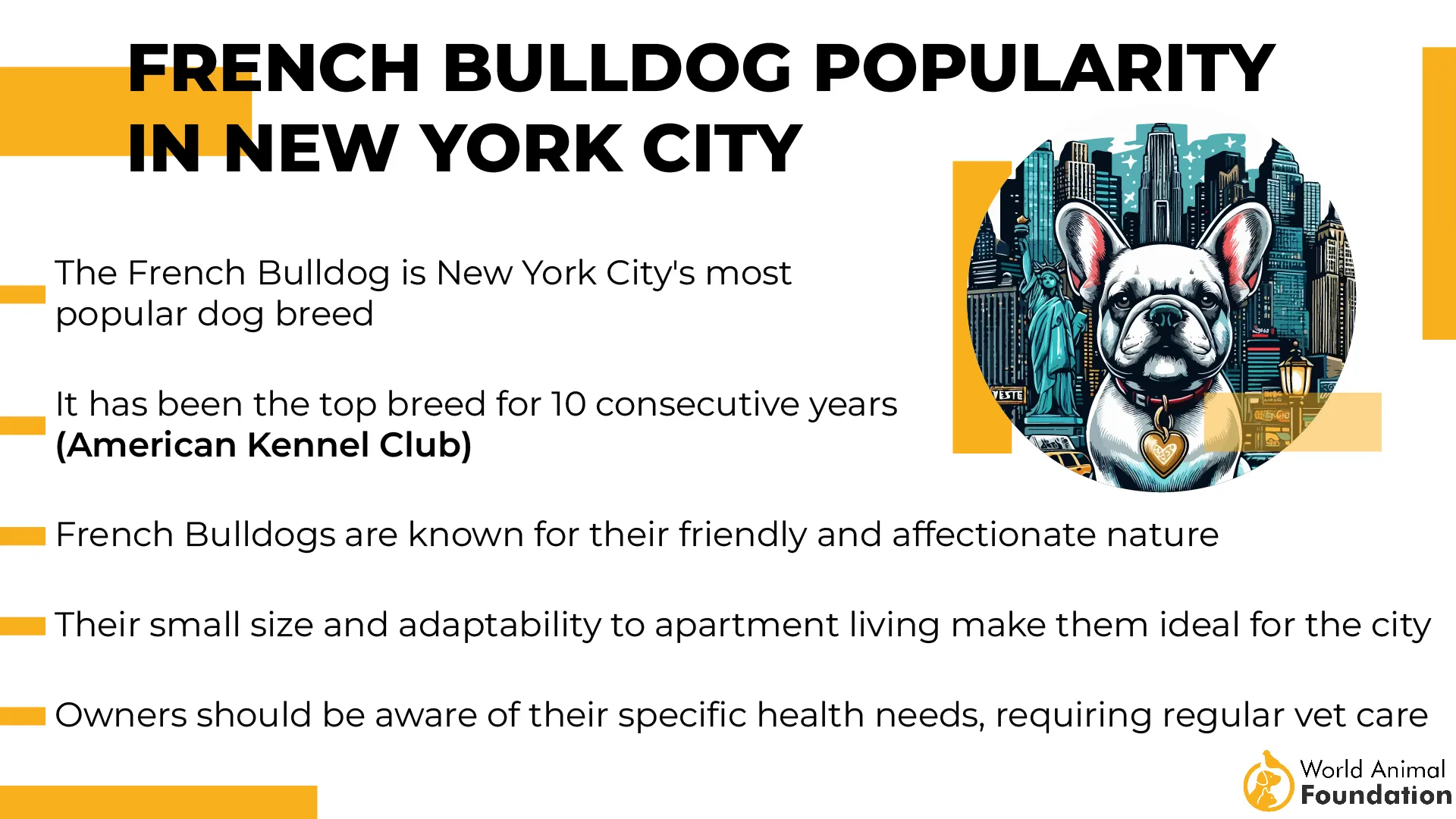
Comfort-driven and People-focused
They naturally seek out soft spots and familiar scents, so bringing their favorite blanket instantly sets them at ease. Their strong bond with their person keeps them close without needing constant attention. They’ll nap through most of the trip, right beside you.
7. Dalmatian
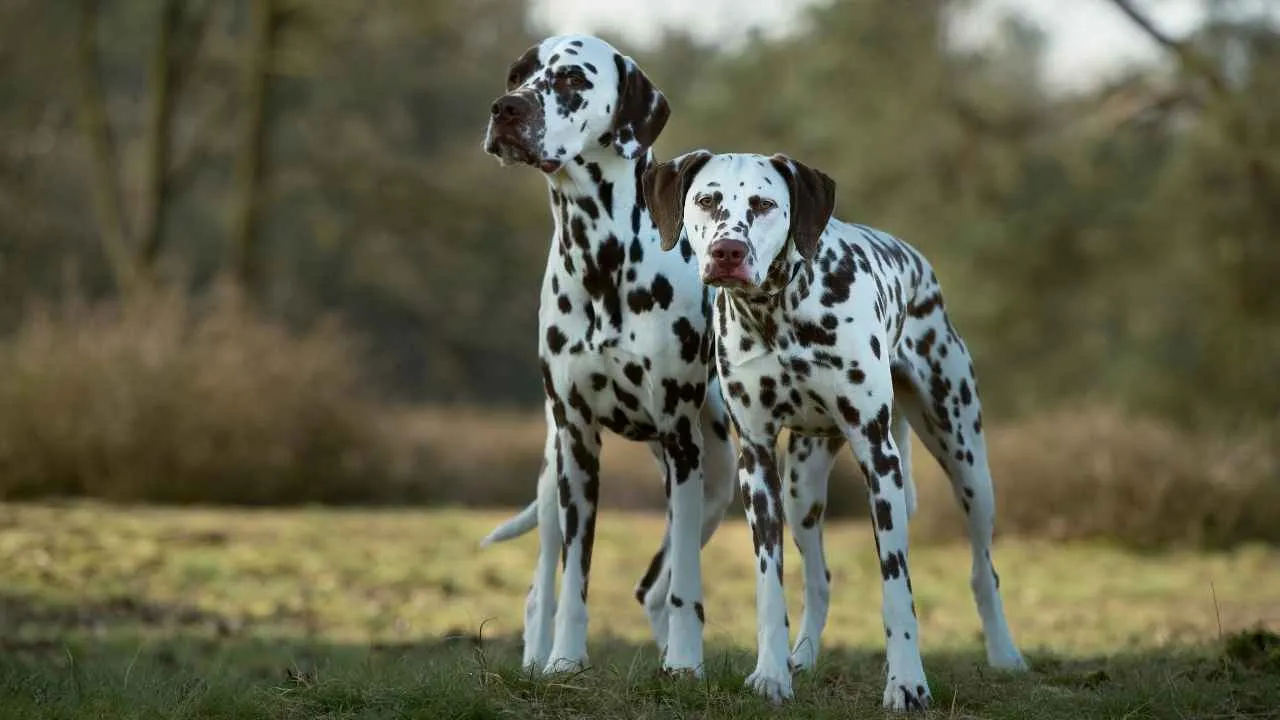
Originally bred to trot alongside carriages, Dalmatians have a historical link to travel, as mentioned in the AKC. Their stamina isn’t just physical—it’s behavioral. They’re wired for endurance, handling extended days on the road without burning out.
Alert but not Reactive
One of their strengths is being observant without barking at every passing noise. They can track what’s happening around the vehicle without causing disruptions. That mental stability matters when traveling through unfamiliar cities or crowded rest stops.
Body-aware in Compact Spaces
Their lean frame and natural coordination make it easier for them to adjust to tighter car setups. They rarely knock over food bowls or get tangled in gear. You’ll notice how intentionally they move in new environments, even while unloading.
Consistent Behavior Across Locations
They don’t display sudden mood shifts between environments, which helps with managing schedules. Whether it’s a gas station or a hiking stop, they maintain predictable behavior. That consistency helps when you’re dealing with long-haul logistics and fatigue.
Conclusion
If the road is where you feel most alive, the right dog can turn every journey into something steadier, warmer, more grounded. Not all breeds are meant for long trips. Some face health issues, others struggle with too much change.
But the dogs listed above? They match motion with ease. They keep the energy balanced without needing much in return. Even larger dogs, with the right temperament, can blend beautifully into road life if their size matches your space.
Traveling with a dog isn’t always simple. But it can be peaceful — even joyful — if you pick a breed that thrives in the in-between moments. As you load the trunk and map the next route, you’ll feel it — the calm weight of a dog who doesn’t need anything but the journey and you.
For people who keep moving, that kind of companionship is worth everything.


